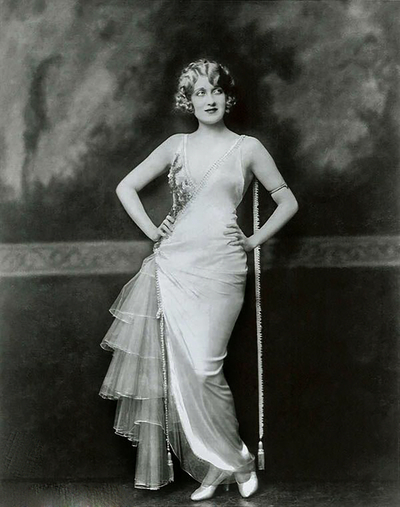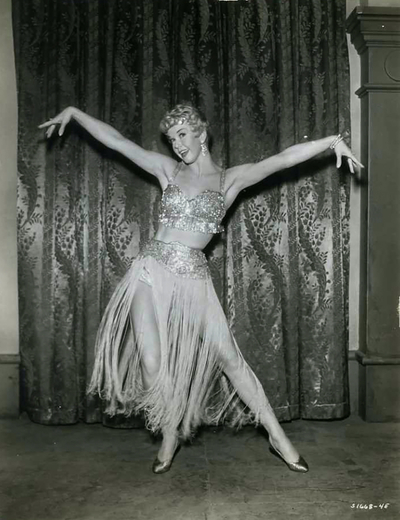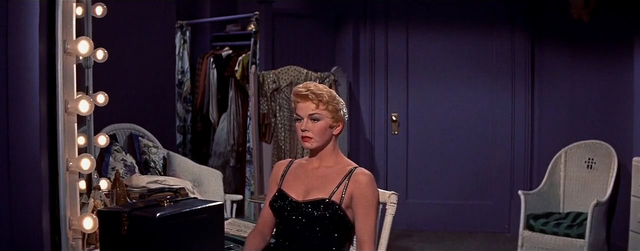It's not easy being a Doris Day fan. While the star made her final exit nearly three years ago, it might take years before her reputation recovers from decades of calumny – decades when she was both unmatched in popularity and a convenient scapegoat for critics in need of a punching bag, and a generation desperate to deputize anyone to stand in for their parents.
Everybody thinks they know what they're talking about when her name comes up – especially the people eager to dismiss Day as a singer or actor or cultural touchstone. Most of them – which is to say all of her critics and more than a few of her fans – don't know what they're talking about; the Day they're attacking (or worshipping) is a largely a figment of their imagination.
This assessment of Day's hit comedies with Rock Hudson, in an obituary for Day published by Vox, is typical of the stale piffle disguised as insight, even when it's trying to be generous:
"A kind of 'Tom and Meg' of their day, Hudson and Day peddled heteronormativity as classic Americana. But Hudson's status as a closeted queer man, along with Day's own stature as a woman struggling to control her own financial and professional destiny, complicated that legacy and the wholesome frivolity of their all-American image."
Forced to address misperceptions about Day in Considering Doris Day: A Biography, his book about the star's onscreen career, Tom Santopietro asks:
"Was Doris Day actually talented, or was her stardom, as her detractors would have it, a case of a naïve, uninformed American public reacting to a bland, forced optimism relentlessly supplied by the Hollywood dream factory and this paragon of sunniness? In other words, just why did Doris Day succeed?"
Criticism of Day was, most of all, a generational marker, which only began in earnest in the '60s, at the height of her box office success, and echoed down through the decades that followed – what would be called today a "performative ritual" meant to stake out your position on more issues than just one's taste in pop singers or romantic comedy heroines. As Santopietro puts it:
"It was the baby boomer generation most of all that turned on Doris Day. Misreading the sex farce comedies that propelled her to the number one position at the box office, these post-World War II men and women seemed to decide that Doris Day represented the past and the confining roles into which women had been locked. She became the person most closely associated with the way it used to be for women. Having maintained a standard and stardom that reeked of the establishment, it was Day who took the rap for the winking nature of the sex comedies she popularized with costar Rock Hudson. People may have whispered about Hudson's sexuality offscreen, but he was never ridiculed for his roles in these comedies with the fervor that characterized the attacks on Day. It may be, as John Updike mused, that her 'starriness has a challenging, irritating twinkle peculiar to her...there is nothing about Katharine Hepburn's "goodness" that asks us to examine our own.' (Which only goes to show how strong Doris Day's star persona truly was.) But with the advent of greater sexual freedom in the late 1960s, the movie sex farce became irrelevant, and the glossiness and optimism of the late 1950s and early 1960s were deemed not only passé but worthy of ridicule. And, the reasoning seemed to run, it was Doris Day who was most worthy of ridicule."
I am not the person to defend Doris Day. Like many people I bought into the myth – the "freckled virgin assailed on all sides by callow masculinity" – that's been in circulation my whole life. Some of us are lucky and get the chance to see a Day performance that wipes away the easy clichés; for me it was Teacher's Pet, a 1958 comedy that co-starred Clark Gable. For many people it's Love Me or Leave Me, the 1955 MGM musical that was really the watershed moment in Day's career.
Day made Love Me or Leave Me not long after her contract with Warner Bros. had ended – a run of films that made her a star but are, in hindsight, a wholly lackluster bunch of titles, the (provisional) highlights of which were Young Man With a Horn, On Moonlight Bay and Storm Warning, her only non-musical film for the studio. Ava Gardner had turned down the role, which earned her a studio suspension, and Day got the second big break of her movie career.
Love Me or Leave Me is a biopic of Ruth Etting, a singer who was enormously popular in the '20s and '30s, but whose fame has diminished almost entirely today. But anyone old enough to buy a movie ticket in 1955 would have remembered Etting. She was a singer who, as much if not more than Bing Crosby, built her sound on the measured, intimate requirements of singing into an electronic microphone instead of projecting into a crowded nightclub or the acoustic horn of the first decades of recorded sound. Etting was enormously influential, and her style was imitated widely – you can hear her phrasing all over Fred Astaire's vocals for his RKO musicals.
She had also gained some infamy from her personal and business relationships – specifically her marriage to Martin "Moe the Gimp" Snyder, a Chicago hoodlum who managed her career until his belligerence and abuse led to their divorce. Etting began a relationship with Myrl Alderman, her accompanist, but a still-jealous Snyder traveled to Los Angeles in 1938, kidnapped Alderman, and took him to Etting's home, where a scuffle broke out and Snyder shot Alderman. Etting had already retired from show business, but the scandal gave her an unwelcome notoriety.
Alderman survived the shooting and married Etting, and Snyder spent over a year in jail after two trials. MGM paid Etting, Alderman and Snyder handsomely for the rights to their stories, and assigned Charles Vidor to direct, with Cameron Mitchell playing Alderman and James Cagney as Snyder – the third and last film he'd costar in with Day since The West Point Story (1950), if you count 1951's entirely missable Starlift.
This was not one of the perky songbirds or pretty tomboys that Day had played at Warner, and the only attempt to make Day's round face resemble the more equine-featured Etting was some heavy eyebrow pencil and a conspicuous beauty mark that did more to evoke Jean Hagen's Lena Lamont in Singin' In The Rain. But the film wasn't a family-friendly whitewash of the Etting-Snyder story, beginning with the decision to introduce us to Etting in Chicago, at the low rent dance hall where she meets Snyder while working as a taxi dancer.

It's a curious choice: Etting came from a decent middle-class family in Nebraska, and moved to Chicago to attend art school. She got a job designing costumes at a nightclub, where she moved on to singing and dancing in the floor show. Recasting her early career from art school student and chorus line wannabe into taxi dancer is a loaded decision; it's the most common euphemism for prostitute in movies – a barely disguised subterfuge that was entirely threadbare by the time Bob Fosse staged the "Big Spender" number in Sweet Charity (1969).
Snyder is running a laundry service that covers for a protection racket, and he takes an interest in Day's Etting when she kicks a customer who gropes her on the dancefloor. Cagney's Snyder is your classic "big little man" – a vulgar bully who nonetheless enjoys conspicuous displays of charity, like offering Etting a break in the floor show of a club he controls as a kind of coercive foreplay. He treats her like just another talentless naïf and seems to enjoy what he sees as a brief game of cat and mouse before he gets what he wants – preferably during a trip to Miami – and assumes she's just as aware of the game.
"She knows," he tells his henchman. "They learn in the cradle."
If you think about the line for even a second, it makes you shudder.
The stakes are raised, however, when it turns out that Etting has real talent, nurtured by Mitchell's Alderman. She's forced to choose between the two men – love and integrity but the enormous risk of never catching the next essential breaks with Alderman, or the very near sure thing that Snyder can engineer with influence and threats, at an obvious price. She chooses the latter.

In Cagney, his biography of Day's co-star, John McCabe writes that Etting "was – in a then current phrase – no angel. Doris Day, in her autobiography, refers to Etting as a 'kept woman' who got her start through gangland connections. 'There was a vulgarity about her that I didn't want to play,' said Day, and that is why the film's producer, Joe Pasternak, wanted her: 'to give Ruth Etting some dignity.'"
While making Etting a taxi dancer seems a strange way to go about it, casting Day was definitely a good decision. Day had mined perky and sparkling more than enough in her films for Warner, and had learned a lot about acting in the process. Cagney had been doing characters like Snyder for over twenty years; The Gimp himself was flattered that Cagney would be playing him. He's all bluster and swagger, innuendo and threat, but next to him Day seems to come from a more subtle, modern place; she'd learned how to pitch her low, husky voice to create a sense of intimacy, much as Etting had done the same thing on her records.

She has no problem hinting at the cost Etting's bargain with Snyder has on her. As her star rises, we see her drinking in her dressing room, and Snyder cracks "You oughta lay off that stuff – you're getting to look like an old hag." She still, of course, looks like Doris Day, but the actress conveys Etting's weariness and resignation beautifully; at one point during filming Cagney, who hadn't been terribly impressed by her on The West Point Story, took Day aside and compared her to Pauline Lord, the actress who created the role of Anna Christie in Eugene O'Neill's play, and Laurette Taylor, who did the same with Amanda in The Glass Menagerie.
"Both these ladies could really get on there and do it with everything," he recalled telling Day. "They could take you apart playing a scene. Now you are the third one."
Snyder's connections take Etting from nightclubs to radio, from Chicago to New York and finally to Hollywood, but along the way the threats and violence increase. Snyder thinks nothing of threatening anyone helping Etting, and when the debt she owes him can't hold off the inevitable any longer, he rapes her as a prelude to marriage.
Love Me or Leave Me is the Ruth Etting story as much as any biopic you'd see at the time – which is to say sort of but not really – but it's really a story about the transactional nature of relationships in show business – which is to say Hollywood. Sex and power are the currency, young women coming to the table with sex to offer – a coin more abundant and therefore less valuable – while older, often unattractive men hold all the power. The balance of power is obviously, infamously uneven. Talent only matters inasmuch as it can make the path to success move faster and further – if you're lucky.

Re-watching the film twenty-five years later, Cagney remarked to McCabe, his biographer: "Just saw something I hadn't noticed before. There are no other women to speak of in the cast. Doris is so very much alone, which heightens the effect of the male world upon her. How many nice girls there are, and were, in this business who were just so afflicted – by the presence everywhere of intimidating males."
One of the abiding marvels about Hollywood is how it can almost annually depict its rapacious, venal nature and reliance on exploitation and sail on into the future to do the same thing, over and over, as if every film it makes about casting couches and sexual bargains are just some ritual apology they need to make to maintain the status quo. Occasionally a Harvey Weinstein and a #MeToo moment might seem to break the cycle, but from a distance they just look like a speed bump.
Finally the moment comes when Snyder oversteps himself, and Etting has more power on her side than her abusive husband and Svengali. She leaves him, and while she tries to keep a professional distance from Alderman – now working with her as the musical director on her picture – they can't hide their attraction from either themselves or Snyder. He follows her home and ambushes Alderman, ending up in jail, apparently ruined.

At this point the film manufactures another key departure from Etting's story. Snyder sinks all his money into a nightclub, desperate to match her success on his own; released from jail on bail that Etting arranged, he's driven to the club, which is featuring Etting as a headliner to packed houses. What remains of her debt to him is being repaid, despite the rape, the abuse, and the attempted murder.
"This is one hell of an adult musical," Tom Santopietro writes in Considering Doris Day, "with often fierce dialogue that can still disturb fifty years later: As Marty tries to tell Ruth about how he is getting jobs for her, how big he'll make her, she replies with an ego-crushing 'You don't have to sell me. I'm already sold.' The hurt that Cagney registers at this verbal knife thrust simultaneously repels and invites sympathy."
As Day's Etting explains when she offers mercy, not vengeance, to Snyder at the end of the film: "I didn't want him to help me, but I took it."
There was, no doubt, a gulf of context and social norms that opened up between the scandalous events of Ruth Etting's life and the making of Love Me or Leave Me, made plain by the conspicuous departures the script takes from the facts of Etting's story. There's an even wider one between the film and the world we live in now: a young person watching the film today would find Etting's act of mercy toward an abuser, rapist and attempted murderer like Snyder baffling. I'll admit that I watched it with what I have to call a sensation of moral vertigo.
Most stories about Day make a big show of quoting the line apocryphally attributed to Oscar Levant, as if it tells you everything you need to know about her: "I knew Doris Day before she was a virgin." It was a tired gag then and it's tired now. Day – married three times when she made Love Me or Leave Me, twice to abusive men – had been a successful band singer before arriving in Hollywood. There was a lot of personal experience behind her take on Ruth Etting – more than even she knew at the time.

Love Me or Leave Me was a hit with both critics and the box office; the soundtrack album was the best-selling record of Day's catalogue, and it made the rest of Day's career, which included five years as the top box office star, a possibility. But fifteen years after it was released she had made her last movie ever, and three years after that she'd effectively retired from show business, after five years doing a TV sitcom she didn't want to make – the show that many people base their whole idea of Doris Day upon.
Her husband, Marty Melcher, had been her business manager since the early '50s, and upon his sudden death in 1968 she discovered that he'd made a series of bad investments that lost all her money, and signed her to a TV contract without telling her.
In Cagney, John McCabe calls it "a long and ultimately catastrophic marriage. In her autobiography she cites 'the parallel, in some respects, between [the Gimp] Snyder and Marty Melcher...I hadn't realized at the time how much Ruth Etting and I had in common.' Jim (Cagney) said: 'It was as if the picture was a prediction of Doris' own life. Snyder lived vicariously through Etting, as Melcher did through Doris."
We flatter ourselves that our love for anti-heroes and celebrations of ethical and moral "gray areas" makes us more sophisticated than the people who voted for Eisenhower and made films like Pillow Talk. We think we invented irony. We assume we know everything about Doris Day.
Mark Steyn Club members can let Rick know what they think by logging in and sharing in the comments below, as access to the comments section is one of many benefits that comes along with membership in the Mark Steyn Club.






















